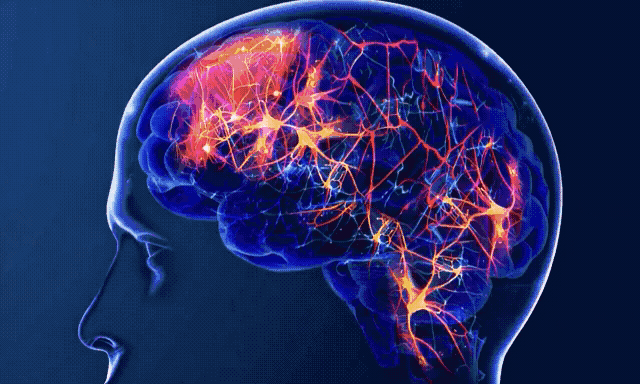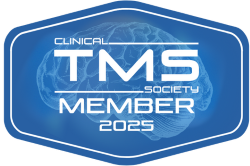The Neuroscience of Why Your Brain Needs Gratitude to Heal
September 15, 2025
How gratitude literally rewires depressed and anxious brains—and why it's not just positive thinking

In this article:
- Why gratitude isn't just "positive thinking" but actual brain medicine
- The specific neural circuits that gratitude activates and strengthens
- How depression and anxiety literally block your brain's gratitude pathways
- Real patient stories of using gratitude as part of mental health recovery
- The connection between gratitude, neuroplasticity, and healing
________
Jennifer sits in my office, three months post-TMS treatment. Depression lifting, anxiety manageable. But she's confused.
"I keep noticing things," she says. "Small things. The way morning light hits my coffee cup. My daughter's laugh. I used to walk right past these moments."
She pauses. "Is this what normal people feel like all the time."
This happens a lot with my patients. As their brains heal from depression and anxiety, they rediscover something they'd forgotten existed.
The capacity for gratitude.
Not the forced "count your blessings" kind. Real gratitude. The kind that bubbles up naturally when your neural circuits aren't hijacked by survival mode.
Gratitude isn't just a nice feeling. It's brain medicine.
When you're depressed or anxious, your brain gets stuck in threat-detection mode. The amygdala stays hyperactive, scanning for problems. The prefrontal cortex—the part that notices good things—goes offline.
Your brain literally loses the ability to register positive experiences. Not because you're ungrateful. Because the circuits are broken.
I used to think gratitude practices were fluff. Then I started seeing brain scans. Watching how neural networks change with treatment.
Patients who recovered—really recovered—weren't just less depressed. Their brains had developed stronger connections in areas associated with appreciation, wonder, and joy.
The gratitude circuits had come back online.
Maria came to me after two years of antidepressants that weren't working. Couldn't feel anything. Not sad, not happy. Numb.
"I know I should be grateful," she said. "I have a good job, healthy kids. But it's like I'm watching my life through glass."
Her brain scans showed what I'd started recognizing in chronic depression. Hypoactivity in the prefrontal cortex. Disconnection between regions that process emotion and meaning.
Her gratitude circuits weren't damaged. They were dormant.
After TMS, something shifted. Not immediately. Week three, she mentioned colors looking brighter. Week four, she laughed at something her son said.
Week six, she called me crying. Happy tears.
"I was making dinner and realized I was actually enjoying it. The smell of garlic, the sounds from the living room. When did I stop noticing these things."
That's neuroplasticity in action. As her mood circuits healed, her appreciation circuits reawakened.
The research on gratitude and brain function is remarkable. When you practice genuine gratitude, specific things happen:
Your anterior cingulate cortex activates. That's the brain's conflict monitor, helping you focus on positive rather than negative information. Your prefrontal cortex strengthens connections with the limbic system. Better emotional regulation, less reactivity.
Your dopamine pathways get stimulated. The brain's reward system starts functioning normally again. Your default mode network—the part that generates rumination and self-criticism—quiets down.
This isn't temporary mood boosting. It's structural brain change.
Studies show regular gratitude practice increases gray matter density in areas associated with emotional processing. It literally grows the parts of your brain responsible for wellbeing.
But here's what nobody talks about. If you're severely depressed or anxious, you can't just force gratitude. I've watched patients beat themselves up for not being able to feel grateful. Making the depression worse by adding guilt to the mix.
"I should appreciate what I have. What's wrong with me."
Nothing's wrong with you. Your appreciation circuits are offline. You can't think your way into gratitude any more than you can think your way out of diabetes.
That's where treatments like TMS become crucial. We're not just treating symptoms. We're restoring the brain's ability to experience the full spectrum of human emotion.
The physical health benefits of gratitude are just as impressive as the mental ones.
Regular gratitude practice:
Lowers inflammation markers in the blood
- Reduces cortisol levels
- Improves heart rate variability
- Strengthens immune function
- Decreases blood pressure
- Improves sleep quality
Your body literally functions better when your brain can appreciate what's working well.
But again—this only happens when your neural circuits are capable of processing positive information.
Sarah, chronic anxiety, hadn't slept well in months. Every night, her brain would catalog everything that could go wrong tomorrow.
"I tried gratitude exercises," she said. "But lying in bed thinking about good things just made me more anxious. Like I was trying to convince myself everything was fine when it clearly wasn't."
Her worry circuits were so dominant they turned even positive thoughts into fuel for more anxiety. After TMS treatment targeted her overactive amygdala and strengthened her prefrontal control, gratitude became natural again.
"Now when I think about good things before bed, my nervous system actually calms down. It's like my brain remembers that safety is possible."
Here's what I've learned from hundreds of patients who've recovered their capacity for gratitude. It's not about listing things you're thankful for. It's about your brain's ability to pause and actually receive positive experiences.
When neural circuits are healthy, gratitude arises spontaneously. You notice the warmth of sunlight on your skin. The taste of your morning coffee.
Not because you're trying to be positive. Because your brain is functioning properly.
The tragedy is how many people have lost this capacity and blame themselves for being ungrateful. You're not ungrateful. Your appreciation circuits need healing.
This is why I get frustrated with generic wellness advice that tells anxious and depressed people to "just be grateful." That's like telling someone with a broken leg to "just walk normally."
The hardware needs repair first.
At KIND TMS, we track patients' capacity for gratitude as a marker of recovery. Not through questionnaires. Through observation.
When someone starts noticing small pleasures again—the texture of their sweater, a song on the radio, the way their pet looks sleeping—we know deeper healing is happening. Because gratitude isn't a behavior you perform. It's a brain state you inhabit when your neural networks are balanced.
On World Gratitude Day, let's stop treating gratitude like a moral obligation.
It's not about being a "good person" who appreciates things. It's about having a brain that functions well enough to register positive experiences.
If you can't feel grateful despite trying, that's information. Not about your character. About your neurobiology. The good news is neural circuits can heal. Appreciation pathways can be restored. The parts of your brain responsible for awe and wonder can come back online.
Sometimes through therapy and lifestyle changes. Sometimes through treatments like TMS that directly target the dysfunctional circuits. But always through recognizing that gratitude isn't a choice you make. It's a capacity your brain either has or needs help developing.
"I spent years thinking I was broken because I couldn't feel thankful. Turns out my gratitude wasn't broken. My brain was. And brains can heal."
If you've lost your capacity for gratitude and wonder, you're not ungrateful—your brain may need support to access those states again.
Come see us and let's chat!

Meet the Author
Dr. Georgine Nanos, MD, MPH
Founder of Kind Health Group







